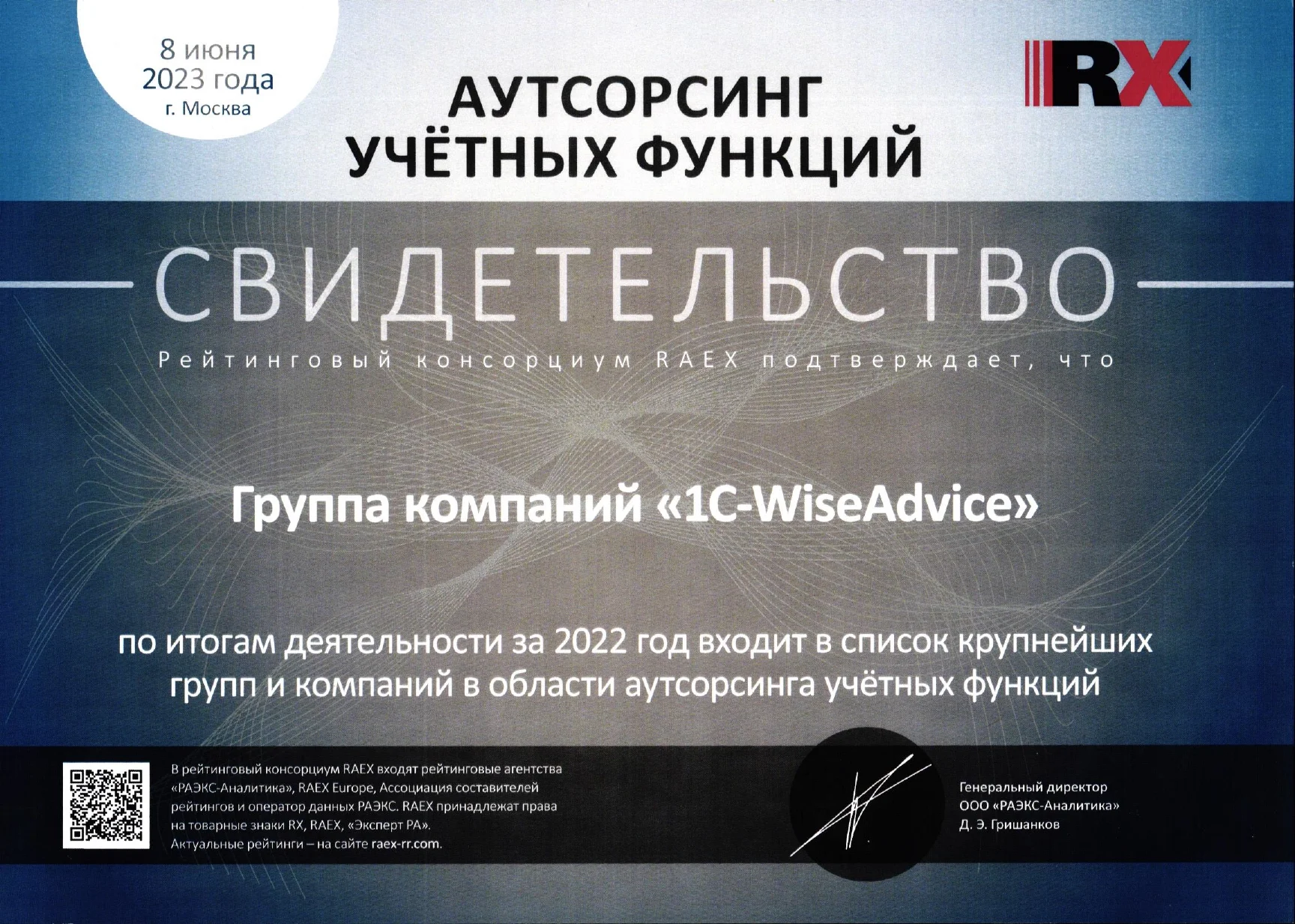About peculiarities of doing business in China
(in Russian)“Once upon a time there lived a Chinese student. One day he set off on his journey to take the imperial exam. When travelling he got seriously ill,” the General Director of “Wai Mao” Mikhail Gagarin says, “The monk, who the young man met on his way, gave him some healing tea which cured the disease. Later the student became a top governmental official and thanked the person, who had saved his life, with a red robe,” our interlocutor continues while pouring some tea. “The monk covered the tea leaves with an expensive gift and this sort of tea got its name - Da Hong Pao - Big Red Robe. “Help yourself!”
Friends Forever
 “Ever since my student years I have had many friends from China. We studied together, helped Chinese students to settle in Moscow, then they welcomed us in China,” Mikhail continues, “we launched some start-ups together – something worked out, something did not. Anyway, we still remain good friends and business-partners.”
“Ever since my student years I have had many friends from China. We studied together, helped Chinese students to settle in Moscow, then they welcomed us in China,” Mikhail continues, “we launched some start-ups together – something worked out, something did not. Anyway, we still remain good friends and business-partners.”
Mikhail Gagarin studied in Moscow State University of Economics, Statistics and Informatics. After graduating from a prestigious university the young man was supposed to make a good career in the banking sector. Mikhail found it boring to manage other people's finances and started thinking about the ways of earning his own capital. He worked in the jewellery business, managed accounting and finance outsourcing projects for a metallurgical company, but never stopped considering any ideas of setting up a business with his Chinese friends.
The linguistic agency Mail to China was one of the first companies run by Mikhail and his university mate Eduard Tszyan. When translating Chinese texts, the young people met a lot of businessmen from China, got useful contacts and decided to work in the sphere of production.
Nets and Chains
“It is not a secret that the Russian market is now saturated with various types of products. It seems that everything possible has already been introduced here!” says Mikhail. “But it turned out not to be true. We found a niche that had not been fully occupied at that time and in which the competition had not been as tough as in other sectors.”
 When “Wai Mao” was coming into the market, there had already been a couple of large companies working in packaging business. What kind of enterprise should the company be to succeed in this field? Plastic net bags, polypropylene sacks are necessary and useful but rather cheap goods. The business doesn’t seem to be profitable.
When “Wai Mao” was coming into the market, there had already been a couple of large companies working in packaging business. What kind of enterprise should the company be to succeed in this field? Plastic net bags, polypropylene sacks are necessary and useful but rather cheap goods. The business doesn’t seem to be profitable.
Everything looks so easy just at first glance though. Did you know, for example, that the sunlight causes destruction of polypropylene? So, bags made of it can be good for packing seeds, sugar or cereals inside, but are not suitable for harvesting vegetables outside – in the fields. Primary polyethylene melts in the sun – the net can be easily stretched and torn. That is why there is a formulae or a recipe for each type of product.
The main customers of the company are agro-industries and retail chains throughout the whole country up to Kamchatka. “Wai Mao” supplies agricultural enterprises of northern, southern and central Russia. The company operates in the Urals, Sverdlovsk region with the logistics center in Novosibirsk. There are such retail chains as “Azbuka Vkusa” and “Utkonos” among company’s customers.
“I believe that our company can compete in the market thanks to the fact that we decided to avoid the “buy-and-sell” model, but organised our business processes in such a way that the Chinese plant produces products exactly according to our order. From our previous experience, especially for Russia we developed recipes, sizes and even a palette of colors for our products.”
Colour Matters
“Yes, do not be surprised – we have our own concept of colour,” smiles Mikhail Gagarin, “and it is very important to stick to it. The fact is that our consumers can be divided into two types: those who harvest in the fields, and those who sell fruit and vegetables in stores. The intensity of colour is very important in trade. Bright packaging is slightly more expensive, but our clients are ready to pay as products look more attractive to their customers.”
Disposal packaging has existed on the Russian market for about ten years. During this time consumers have been getting used to it and choosing the product of the colour they need. At the stage of market research “Wai Mao” had products of six colors. Now the palette consists of fourteen colours including three-five shades of each. All of them meet Russian consumers’ expectations. For instance, green nets can be mint-, olive-, or aqua green. Iranian cabbages look good packed in yellow bags, while greenish net bags make cabbages grown up in Russia more attractive. If you pack washed potatoes in a lilac-coloured net bag, they will look unappetizing. White colour looks more impressive in a combination with red, etc.
 “It is interesting that, for example, our factory in Africa supplies net bags of different variations of black,” enthusiastically says Mikhail Gagarin, “as far as I know, anthracite colour of packaging is very popular on that continent. Why? Due to African climate and geographical features, vegetables are different from ours. There are not any potatoes, and the majority of root crops are dark. They are sold well in bright purple packaging. Purple is also popular in China for packaging of pinkish vegetables like sweet potatoes.”
“It is interesting that, for example, our factory in Africa supplies net bags of different variations of black,” enthusiastically says Mikhail Gagarin, “as far as I know, anthracite colour of packaging is very popular on that continent. Why? Due to African climate and geographical features, vegetables are different from ours. There are not any potatoes, and the majority of root crops are dark. They are sold well in bright purple packaging. Purple is also popular in China for packaging of pinkish vegetables like sweet potatoes.”
Undoubtedly, the size of packing nets is also important. From experience company’s specialists have created a range of sizes for their products. The demand depends on the agricultural season. A cabbage net sized 53 by 83 cm accommodates, for example, two heads of cabbage in a row, but not one and a half. So packaging costs and expenses are reduced. It is clear that clever marketing and competent logistics are not enough for success of the enterprise. The main factor of business profitability is always the quality of the product.
Accounting Outsourcing
 “All managers of our company have a degree in Economics and obviously know the basics of accounting. However, we understand that it is not enough to be able to assess the qualification of an accountant,” says Gagarin, “I must admit – when hiring accountants we had to learn from our own mistakes. Unfortunately, in the beginning our in-house accountant could not avoid mistakes in preparing and submitting official reporting. The most unpleasant thing was that we had found out about those mistakes post factum, from tax authorities.
“All managers of our company have a degree in Economics and obviously know the basics of accounting. However, we understand that it is not enough to be able to assess the qualification of an accountant,” says Gagarin, “I must admit – when hiring accountants we had to learn from our own mistakes. Unfortunately, in the beginning our in-house accountant could not avoid mistakes in preparing and submitting official reporting. The most unpleasant thing was that we had found out about those mistakes post factum, from tax authorities.I used to work in outsourcing and understand how it works and what benefits it brings. All our suppliers, logistic and transport companies, customs brokers are outsourced. We decided to try accounting outsourcing. We were not lucky with our first accounting provider. Then we found 1C-WiseAdvice on the Internet. The company is among the top market leaders of accounting outsourcing. It turned out to be the best option for us in terms of prices and service standards. The most important thing is that now our accounting is led by professionals who monitor all the changes and meet deadlines in reporting.”
“Made in China” Prejudice
“I think it is unfair to consider all goods made in China to be of low quality. Quality is always the responsibility of an entrepreneur ordering products. The Chinese keep saying: “You get what you have paid for”, Mikhail continues, “Imagine: the factory produces the same product for different entrepreneurs. One pays a ruble for raw materials, and another - two. Is there a difference? We market our products as quality ones. Information about us is spread through word-of-mouth. The plant we work with manufactures products not only for the Russian, but also for the European market, and Europe is known for being very quality-conscious”.
Despite prejudice and notorious rumors about Chinese quality, local companies have no problems with marketing. Everything that is not sold abroad goes to the national market – the largest market on the Planet. Chinese businessmen no longer need to win new customers – customers come themselves. Potential partners are welcomed and treated with delicious tea which cannot guarantee any further cooperation though.
Mikhail Gagarin continues: “We were lucky to get the knowledge in the area of cross-cultural communication and the peculiarities of doing business in China firsthand. We have long been friends with Chinese, we studied and worked together. It needs to be said that when you come to the factory, you shouldn’t talk about business from the very beginning. You are a dear guest, a friend who will be “dined and wined” at the first place. Then your partners will talk to you and listen to you attentively. It is necessary to make a good impression, demonstrate your abilities, your serious attitude, to give as they say – “menzes” – show respect to your hosts. And only later, after returning home, you can start negotiating by e-mail or phone.”
Red Envelope
Chinese managers also show respect to their staff. Since ancient times there has been a tradition of giving employees a so-called Hong Bao - a Red Envelope with money. It is given during holidays or special occasions. The Chinese have a well-known reputation as extremely hard-working people, so they really deserve a reward for doing their jobs well. Typically, production lines are served by two shifts of employees. People are ready to work on Saturdays and Sundays – the payment for working at the weekend is performed at a double rate. Naturally, many people prefer to earn extra money rather than spend it on entertainment. A plant in China is considered economically profitable only if it works 24 hours a day. Highly qualified employees such as economists, engineers and other specialists usually speak foreign languages and they are very well-paid. The overall standard of living in China is constantly growing. The average salary is compatible with Russian salaries now.
Address: 2 nd Kotlyakovsky lane, 1 building 29, 115201 Moscow
Phone: +7 (8) 495 532 64 45
E-Mail: 3198376@mail.ru

“There are 300 people working for our company at the plant. About 80% of goods produced go to the Russian market. These are net bags for fruit and vegetables, plastic bags and sacks for packaging machines or manual packaging,” says Mikhail Gagarin. “Now we are planning to start production of waste bags for construction needs.
Just imagine how big the volume of construction is in our capital at the moment and prospective plans are even more ambitious! According to the legislation, the process of packaging and waste disposal in construction is strictly regulated. You see that our market is constantly suggesting ideas for business in various areas of the economy. It is incredibly interesting and opens up new horizons!”

